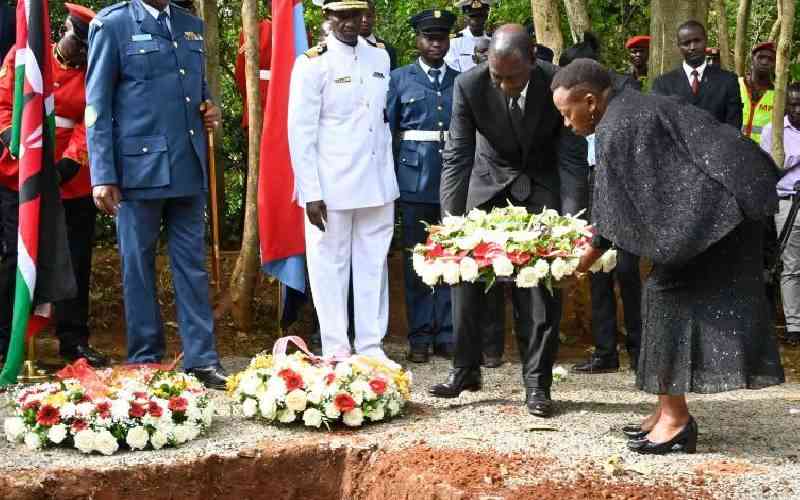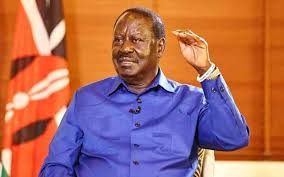This will go down as one of Kenya’s most fateful weeks. With two days to the repeat presidential election ordered by the Supreme Court in its ruling on a petition fi led by the National Super Alliance challenging Uhuru Kenyatta’s August 8 election, the question is not whether the election will take place or not.
It is whether the outcome will be acceptable across the country. With Raila Odinga’s withdrawal, all indications are that Uhuru Kenyatta will be voted back to o? ce. But to govern effectively Kenyatta will need a convincing win.
Unfortunately, the controversial nature of these elections – some would call them fl awed – will leave his victory under a cloud. In a properly functioning democracy, the majority get their way while the minority have their say. But an election where nearly half the country stays away will contravene this unwritten rule.
Even though he will ultimately occupy State House, it will deny the winner universal acceptance and chip away at his political legitimacy.
Some have questioned the wisdom of proceeding with the poll. To this end, the Opposition cites the failure to address their list of “irreducible minimum” reforms which, they argued, would raise the vote to the Supreme Court’s standards.
Others argue that an electoral deal between Uhuru Kenyatta and Raila Odinga would have eased national tension and made it more acceptable.
Indeed, the chairman of IEBC says the rifts in the Commission undermine the delivery of a free and fair election and has warned against proceeding without a meeting of the two main contestants. But the Jubilee side has cast this view aside.
They argue that an election must take place at whatever cost to avert a constitutional crisis. They say the Supreme Court’s order must be first fulfilled and only then can the country have a legal basis to address any issues surrounding the outcome. It is their view that IEBC should execute its mandate and leave it to the courts, not the Opposition, to pick out any faults in the vote.
There are merits and demerits to these arguments. However, in nudging Kenya to their chosen political paths, Uhuru and Raila must be guided not by their power of persuasion or access to means of coercion, but by the best interests of the nation called Kenya. Tony Blair, Britain’s former British Prime Minister, underlines this thought in his biography, A Journey. He says: “The true test of leadership – amongst all the tests of policy, judgement, politics and ability - is whether, in the final analysis, you put the country first.”
He exhorts leaders to put what they “perceive to be the common good of the nation before (their) own political self… you as an individual take second place to the interests of the nation as a whole.”
Will Uhuru and Raila stand this test? They can, if they do the right thing in the small window between today and Thursday.
This should not be about political supremacy or personal ego. It should be about the good of the 41 million Kenyans who for now are filled with trepidation. With the economy beginning to shut down, many livelihoods are threatened; the GDP growth has been revised to below 5 per cent and the Kenya National Bureau of Statistics reckons that in the third quarter the economy has expanded the least since 2009, when another post-election dispute plunged the country into turmoil.
It could get worse. But possibly the worst consequence of the election crisis has been the rise of ethnic chauvinism across the country. So divided has the country become that, depending on party or tribal affiliation, enlightened Kenyans cannot find common ground on whether or not murder is unlawful or if the courts have the final word on the law, or whether, absurdly, the citizens of this country are equal.
In the days since the Supreme Court overturned Kenyatta’s election, at least 57 people have died in political protests, most of them killed by police. Businesses of colossal value have been destroyed and fearful Kenyans driven to relocate.
It has left the country without voices of rectitude when things are going wrong. Lawyers who in the past spoke out for constitutional rule have gone silent. The Church, which preaches the Bible and worships one God, has shown little interest in being heard. And the business community calls press conferences to whine about falling investor confidence as if trade occurs in a vacuum.
Stay informed. Subscribe to our newsletter
Hard as it might seem, we must in the next few days find trusted public figures who can serve as honest brokers between our warring leaders. And the two protagonists, Kenyatta and Odinga, must be big enough to abandon their hard-line positions and join in honest negotiations to save this nation.
Whatever political side you support, pause for a moment, pull back from the brink and urge our leaders to sit down and talk.
On this, Kenyatta, being the occupant of State House, can offer leadership. The presidency is more than just an individual; it is a symbol of our statehood and a rallying point for the nation. If he ignores the strident voices in his Jubilee Party, he can disarm the Opposition by showing courage and statesmanship and paving the way for a resolution. Odinga, on his part, will have to break out of the choking grip of NASA extremists and sit down at the table for honest talks, abandoning his widely-publicised demands.
Peter Hennessy, professor of contemporary British history at Queen Mary University of London, has written about the “emotional geography of power” that all leaders must adapt: That a leader must be decisive, be ready to bend backwards to cut a deal if it is for the common good; it will involve taking risks by seeking alternative opinion and accepting dissent; it will mean persuading and co-opting an opponent to one’s side.
In the next two days, Kenyatta and Odinga must make use of this skill, if nothing else. That needlessly belligerent tone serves them ill. After all, we are always told - by these same politicians - that Kenya is bigger than all of us.
There can be no doubt about the ability of the Government to ensure the elections scheduled for Thursday take place. And its determination to do so has been made clear. Indeed, the constitutional quandary facing it is understandable.
So Odinga and his supporters would be unwise to interfere with the rights of those who wish to vote if the elections go ahead.
But an election that excludes half the nation – whether they have boycotted it for sound or illegitimate reasons, cannot be in the best long-term interests of the nation. It will certainly leave Kenyatta in power and he will use all constitutional means at his disposal to govern.
But he will do so with a blemished mandate – and that will set the country on a new path of political tug-of-war, which will not guarantee the peace and stability we need for progress. Gentlemen, sit down and talk.
 The Standard Group Plc is a
multi-media organization with investments in media platforms spanning newspaper
print operations, television, radio broadcasting, digital and online services. The
Standard Group is recognized as a leading multi-media house in Kenya with a key
influence in matters of national and international interest.
The Standard Group Plc is a
multi-media organization with investments in media platforms spanning newspaper
print operations, television, radio broadcasting, digital and online services. The
Standard Group is recognized as a leading multi-media house in Kenya with a key
influence in matters of national and international interest.
 The Standard Group Plc is a
multi-media organization with investments in media platforms spanning newspaper
print operations, television, radio broadcasting, digital and online services. The
Standard Group is recognized as a leading multi-media house in Kenya with a key
influence in matters of national and international interest.
The Standard Group Plc is a
multi-media organization with investments in media platforms spanning newspaper
print operations, television, radio broadcasting, digital and online services. The
Standard Group is recognized as a leading multi-media house in Kenya with a key
influence in matters of national and international interest.









